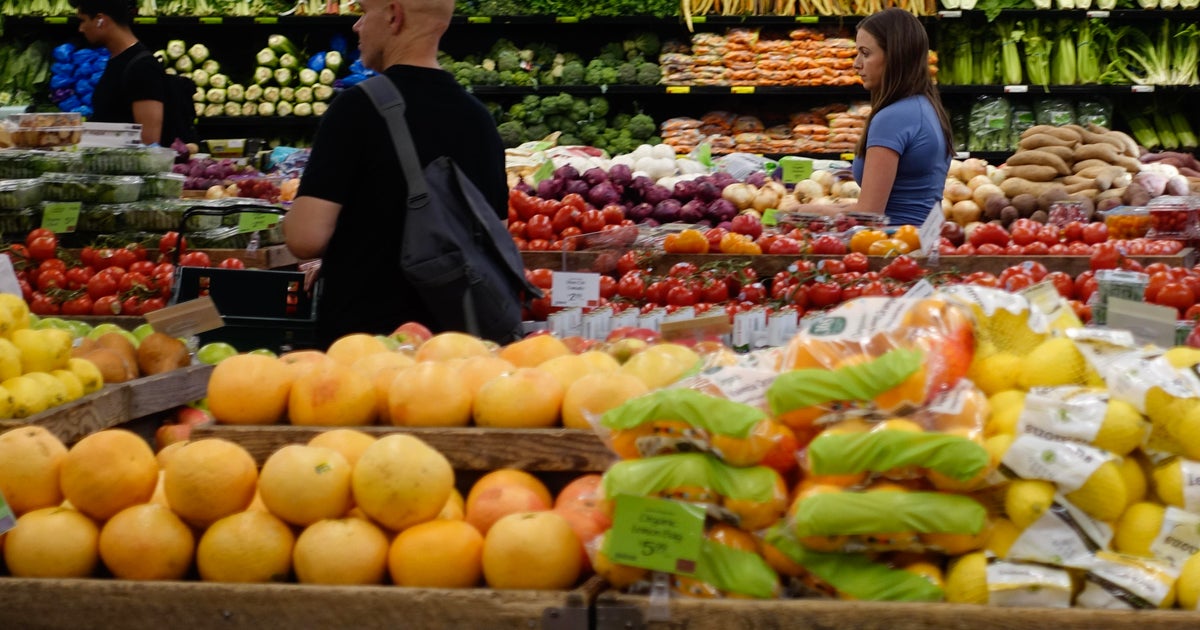High anxiety: More than a third of U.S. adults are stressed out over money, poll shows
More than a third of U.S. adults say the fragile state of the economy is stressing them out, with the impact of high inflation a particular concern, a new poll shows.
About half of U.S. adults in households earning less than $60,000 annually and about 4 in 10 of those in households earning $60,000 to $100,000 say they're very stressed by their personal finances, according to The Associated Press-NORC Center for Public Affairs Research. Roughly a quarter of those in higher income households report worrying about money.
Overall, 36% of adults say the national economy is a major source of anxiety, found the poll, conducted March 16-20, of 1,081 adults.
"Few adults are very confident they can keep up with their expenses, pay an unexpected medical expense, have enough to retire or find a job," the polling group said.
Beverly Lucas, 76, of Cary, North Carolina, said she sees how inflation has hemmed in the lives of her fellow seniors on fixed incomes.
"There's no comfort zone in their finances — no vacation. They're just getting by," she said. "Medications are expensive. Groceries. No one's living large or having fun. They should be having fun."
Lucas, a retired Christian education teacher who lives off Social Security and a pension, said she is moving to downsize and save $500 a month. If she had stayed in the two-bedroom where she had lived, she said, her expenses would have gone up this year.
About three-quarters of adults across income groups say their household expenses are higher now than they were a year ago. Those in households earning less than $100,000 a year are more likely than those in higher income households to say they also have higher debt. Those facing a combination of rising debt and expenses overwhelmingly say their financial situation is a major source of stress.
The poll also finds that people in households earning at least $100,000 annually were more likely than lower income earners to predict their finances will improve in the year ahead, 39% to 26%. By contrast, people in lower income households were more likely than those earning more to expect their financial situation to worsen, 28% to 18%.
Inflation around the U.S. rose at an annual rate of 6% rate in February, three times the Federal Reserve's 2% target. Many economists also worry that the Fed's remedy for higher prices — raising interest rates — is likely to trigger a recession later this year or in early 2024.
Debt + inflation = stress
Tyronda Stringer, 28, who works as a truck loader at Walmart in Banks, Alabama, said her debt has increased in the past year due to medical expenses she's still paying off. Stringer, a single mother of two, said the stimulus payments and child tax credits during the pandemic had helped her financial situation, but that now inflation and the cost of childcare have her back living paycheck to paycheck. She's also struggling with high medical bills.
"I used to do three grocery trips a month," she said. "Now it's one and a half at the most. We're just gonna have to cut back on a lot of things. I can see that. Things we're used to or things we need, we'll be getting different brands and things. The only thing I can think of."
Consumers racked up $180 billion in new credit card debt in 2022, the most debt ever added in a single year, according to a recent study from personal finance website WalletHub. The average household's credit card balance was $9,990, up 9% from in the fourth quarter of 2021.
The AP-NORC poll finds that just 1 in 10 of those in households making less than $60,000 a year say their savings have increased over the past year, while about 6 in 10 say their savings have decreased.
Only 20% of adults in that group say they are very confident they can keep up with their expenses, compared with 30% of those making between $60,000 and $100,000 and 46% in households making more than that. Four in 10 adults in lower income households say they are not confident they can keep up with their expenses. About 6 in 10 are at least somewhat confident.
Alexander Nye, 26, a graduate student in geology in Provo, Utah, falls into the first category. Nye, who is married with a child, with another due in April, said he has some student loans to cover his graduate degree, but that he feels financially secure.
"We're in a position where we don't have to travel a ton, so gas and car expenses aren't huge," he said. "With our family growing, we do feel inflation in the cost of diapers, food, and clothes. We've just had to adjust to keep things in our budget. We work around it as much as we can."
Gregory Coney, 60, of Jamaica Plain, Massachusetts, said he's hopeful the national economy will improve over the next year. Coney, who is currently unemployed, had worked in customer service for Merrill Lynch and Bank of America and is raising two children. He's currently interviewing for jobs he's optimistic may pay more.
"I do think it's possible the price of food will go down slightly in the next year," Coney said. "Right now I'm saving for college for two kids, but we'd like to be able to travel, to get money for the kids to go away. And potentially have a new or bigger home."
For the poorest Americans, strained household budgets can mean going hungry. Almost 25% of American adults are defined as food insecure, meaning they sometimes can't afford enough food for a nutritious diet. That's up about five percentage points from a year earlier, according to a recent study by the Urban Institute. In 2022, about 1 in 6 adults relied on charitable food, such as free groceries or meals, the centrist think tank found.



